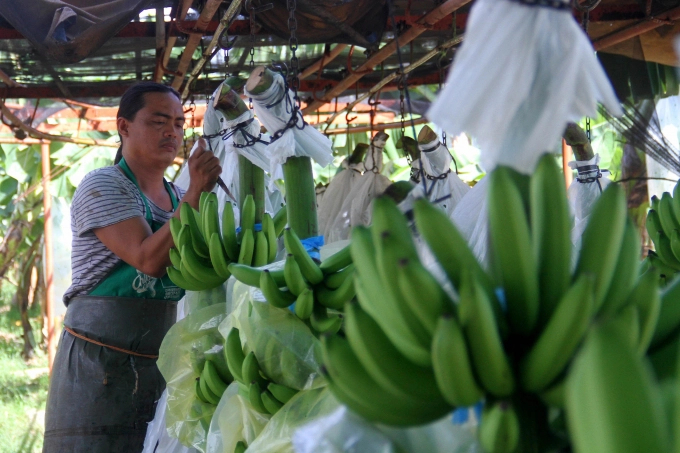November 25, 2025 | 06:19 GMT +7
November 25, 2025 | 06:19 GMT +7
Hotline: 0913.378.918
November 25, 2025 | 06:19 GMT +7
Hotline: 0913.378.918

Banana is among the key fruit export products of the Phillippines. Photo: TL.
The Philippines has waives the fees for the pesticide residue analysis tests for fruits and vegetable exports, aiming to boost agriculture exports and support economic recovery.
According to international sources, the Philippines Department of Agriculture has asked the Bureau of Plant Industry (BPI) and its satellite laboratories to waive the fees for the pesticide residue analysis (PRA) tests for fruits and vegetable exports including both fresh and processed (frozen, dried or puree) ones.
Philippines Chamber of Commerce and Industry (PCCI) Benedicto Yujuico said that the move would benefit about 150,000 farmers in the country including around 150,000 farmers or growers nationwide, including more than 1,000 small and medium processors and exporters engaged in production and processing.
“This is certainly a big boost to the agri-food and export industry especially at this time when businesses have yet to recover from the negative impact of COVID-19 pandemic,” he said.
The Philippines exports have dropped due to chemical residue issues and competition from other suppliers while the country used to be the third-largest exporter of fresh bananas globally until 2015, and the top exporter of fresh mangoes to Japan from 2005 to 2009.
Since 2007, the National Pesticide and Analytical Laboratory has not been imposing PRA fees for fresh and frozen mango exports in compliance with Executive Order 554 of 2006.
In 2019, it started charging residue fees on frozen mangoes amounting to P5,200 for each lot sample.

(VAN) Brazil's COP30 presidency pushed through a compromise climate deal on Saturday that would boost finance for poor nations coping with global warming but that omitted any mention of the fossil fuels driving it.

(VAN) Poultry farmers in the UK have been warned that they could face one of the worst winters yet for bird flu.

(VAN) Prices of main-crop paddy have risen sharply, with jasmine rice hitting 16,100 baht per tonne — the highest level in years.

(VAN) In Brazil, FAO unveiled a series of reports and initiatives showing how sustainable agrifood systems are a solution to the climate crisis.

(VAN) With names like neodymium and dysprosium, rare-earth elements sound exotic — and their perceived scarcity has only added to the mystique.

(VAN) In a new study published in Trends in Biotechnology, researchers used a gene-editing technology called CRISPR to increase a fungus's production efficiency and cut its production-related environmental impact by as much as 61%- all without adding any foreign DNA.

(VAN) A top official in Beijing’s Cop delegation says China is committed to clean energy – but US’s absence is a problem.